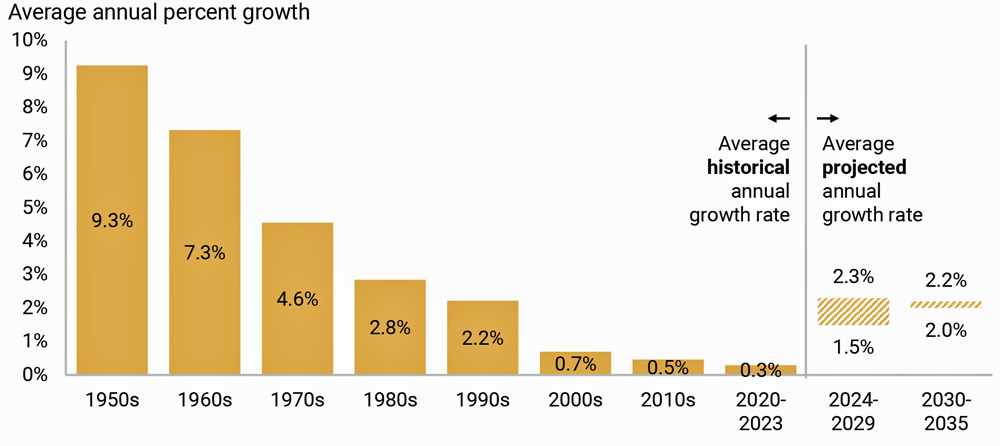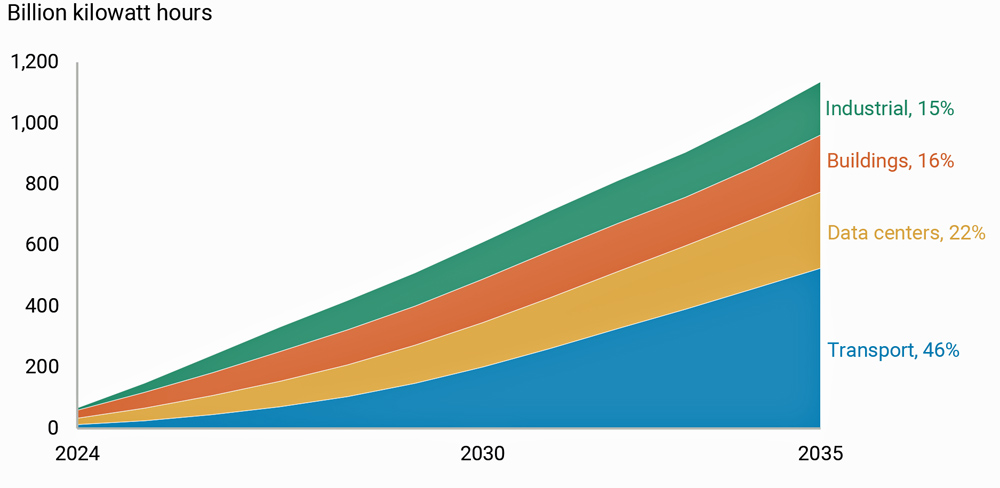At full strength for the first time since the beginning of last year with the addition of Judy Chang this month, all five FERC commissioners appeared at a House oversight hearing July 24 during which representatives questioned them on Order 1920.
Rep. Jeff Duncan (R-S.C.) — chair of the House Energy and Commerce Subcommittee on Energy, Climate and Grid Security — praised Chair Willie Phillips for moving through the backlog of natural gas infrastructure projects but criticized the landmark transmission rule.
“We are concerned the commission has strayed from its responsibility as an economic regulator to an entity focused on assisting the buildout of so-called ‘green energy’ technologies,” Duncan said. “This is happening despite the continued alarms from [NERC] and … grid operators across the country.”
Duncan said Republicans are concerned the order’s “skewed ‘categories of factors’ approach to transmission planning” will drive up costs and threaten reliability. He argued that FERC prioritized Democratic-led state renewable energy targets, Biden administration goals and corporate clean power purchases.
Democrats on the subcommittee supported Order 1920, with Rep. Frank Pallone (D-N.J.), chair of the full committee, saying it builds on the progress of orders 888, 890 and 1000.
“Failing to plan is planning to fail,” Pallone said. “And the basic principle of Order 1920 is that grid planning is essential to maintaining just and reasonable rates. I agree, and I’ve been encouraged by the reception the rule has received from nearly every corner of the political world except from congressional Republicans. It seems Republicans would prefer that their constituents be slapped with higher power bills because utilities are not required, for example, to plan for the impacts of severe weather on the grid.”
Phillips said Order 1920 would unlock cheaper sources of power for customers while bolstering grid reliability.
“Order No. 1920 requires utilities to plan today for the factors that we know will drive tomorrow’s reliability and affordability needs, while requiring that customers pay for new transmission only to the extent that they benefit from that infrastructure,” Phillips said. “Let me say that again: If you don’t benefit, you don’t pay.”
Commissioner Mark Christie dissented on Order 1920, and he explained his disagreement with the majority on how the order would spread the cost of implementing state policies across multistate RTOs.
“Order 1000 said that you can cost allocate public policy projects separately from reliability projects; this rule says ‘no, you cannot.’ That is a major, radical change from Order 1000,” Christie said. “So, it didn’t build on Order 1000; it was a radical break from Order 1000.”
Under the order, public policy and reliability have to be planned for at the same time around a set of required factors, including state renewable targets, with one cost allocation formula based on a set of prescribed benefits for all those projects. Christie said that would spread the costs across all the states in an RTO.
“The states can even agree on a different formula, and the rule says the transmission provider can just ignore it, so I don’t think that’s fair,” Christie said.
Order 1920 does require that transmission providers give states a chance to weigh in on cost allocations, Phillips said later in the hearing. But as many rehearing requests pointed out, the transmission providers are not even required to file any proposal coming out of that with the commission. (See FERC Order 1920 Sees Wide-ranging Rehearing Requests.)
The order was approved in May by Phillips and former Commissioner Allison Clements. The three new commissioners did not get into the debate at the hearing, with Commissioner Lindsay See noting she still is staffing up her office.
See, who comes to FERC after serving as solicitor general of West Virginia, noted the changing legal landscape facing the commission.
“In response to the now-smaller margin of error for agency orders after the Supreme Court’s recent decisions cabining agency discretion, I welcome the important check judicial review offers in our separation-of-powers system,” she said, referencing the court’s decision in Loper Bright, which ended Chevron deference. (See Phillips, Christie Debate Loper Bright’s Impact on FERC Order 1920.)
Chang said her position working for the state of Massachusetts gave her firsthand experience highlighting the importance of having adequate infrastructure, efficient market frameworks and viable approaches to growing the economy while working to cut greenhouse gases.
“As a commissioner, one of my priorities is ensuring a robust and reliable transmission system, including the use of advanced technologies, to deliver affordable energy to all consumers,” Chang said. “This is paramount to the economic growth of our nation, and this is how the United States will continue to lead the world and compete on the global stage in technological innovation and infrastructure development.”
Commissioner David Rosner said a key task for the commission is maintaining reliability and affordability in light of the ongoing clean energy transition in terms of both supply and demand. That will require FERC to remain vigilant to the realities of the resources that power the economy.
“That means continuing to faithfully implement the commission’s longstanding policy of resource and fuel neutrality to allow the next generation of technologies to play their role in the energy system,” Rosner said. “It means continuing to harden the energy system to withstand evolving threats to reliability, including weather, physical and cyber risks.”

